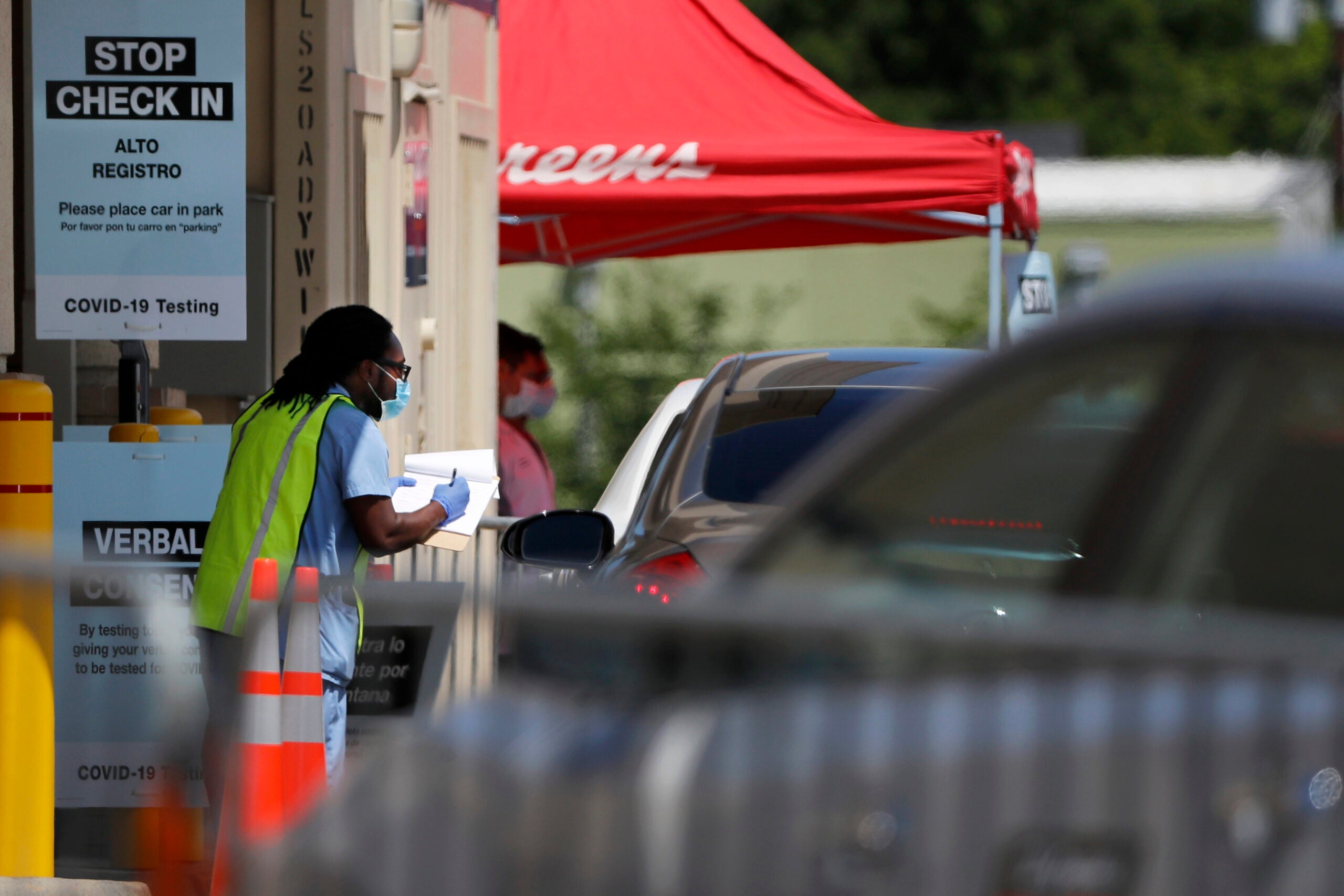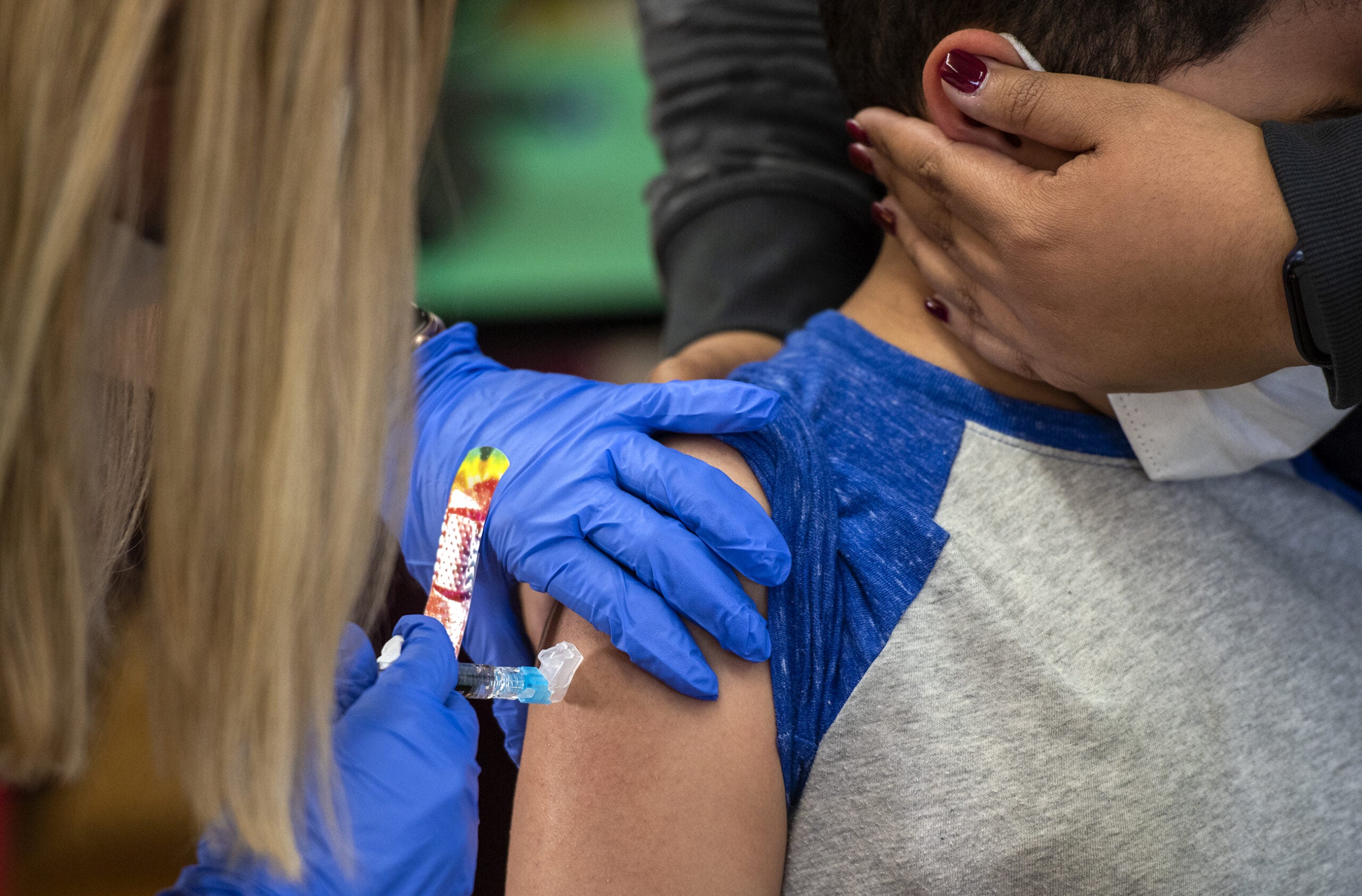There are 6,520 positive cases of COVID-19 in Wisconsin, the state Department of Health Services announced Wednesday. That’s an increase of 231 cases from the day before.
Over the weekend, Saturday marked the largest single-day increase in positive cases the state has seen since the outbreak began.
According to figures from DHS, 308 people in Wisconsin have died from COVID-19 as of Wednesday afternoon.
News with a little more humanity
WPR’s “Wisconsin Today” newsletter keeps you connected to the state you love without feeling overwhelmed. No paywall. No agenda. No corporate filter.
DHS reports 1,489 people have been hospitalized because of the virus. That means at least 23 percent of people who have tested positive for the new coronavirus in the state have been hospitalized. DHS officials have said they don’t know the hospitalization history of 1,276 cases, or 20 percent.
As of Wednesday, 3,210 Wisconsinites had recovered from COVID-19, according to DHS data.
Across the state, 66,630 people have tested negative for the virus so far. From Tuesday to Wednesday, the number of negative test results increased by 3,095.
Brown County has seen a surge in positive tests after health officials traced hundreds of cases to meatpacking facilities there. As of Wednesday afternoon, Brown County had 971 positive cases of the new coronavirus — an increase of 51 cases from Tuesday.
It was announced Sunday that JBS Packerland, a meatpacking plant in Green Bay, Sunday, would be temporarily closing after hundreds of COVID-19 cases were linked to that and other such facilities in the area.
According to the Brown County Health Department, as of Wednesday, there are 262 confirmed cases among employees at JBS Packerland in Green Bay, with 86 linked cases. American Foods Group in Green Bay has 170 confirmed cases among employees, with 27 linked cases.
With recent increases in testing capacity, health officials have loosened restrictions on who can get tested, subject to the availability of testing supplies.
As of Wednesday afternoon, Wisconsin has 50 labs performing COVID-19 tests, up from eight labs in March. According to DHS, they’re able to process 11,040 samples per day. The state has a goal of completing about 12,000 tests per day, DHS Secretary Andrea Palm said Monday.
There are confirmed cases in 66 of Wisconsin’s 72 counties.
The following counties have no confirmed cases as of Wednesday afternoon: Burnett, Forest, Langlade, Lincoln, Pepin and Taylor.
Expanded Food Assistance
Wisconsin is now offering food assistance to families of the more than 400,000 children who are eligible for free and reduced lunch. DHS will distribute $140 million in food benefits that can be used at grocery stores or farmers’ markets to make up for the loss of school lunches from March to mid-June.
“In addition to our public health challenges, we know that there are economic hardships caused by the COVID-19 pandemic that have reduced access to nutritious food for families,” Palm said at a Wednesday media briefing. “We know many districts and community organizations are working tirelessly to help get critical nutrition to these children, and we are happy to announce today that there is more help available to these families.”
The money for these new benefits came from the Families First Coronavirus Response Act.
Families eligible for free and reduced lunch and already receiving DHS food benefits, like FoodShare, will have the new benefits loaded onto their Quest cards or a separate pandemic electronic benefits card. Families not already getting DHS benefits will have to apply separately.
Palm said DHS will work with the state Department of Public Instruction to reach out to families who aren’t currently eligible for other DHS food benefits.
The free and reduced lunch benefits, dubbed Pandemic Electronic Benefit Transfer or P-EBT, are separate from the additional FoodShare benefits DHS added to families’ cards earlier this month.
Wisconsin Public Radio, © Copyright 2026, Board of Regents of the University of Wisconsin System and Wisconsin Educational Communications Board.





